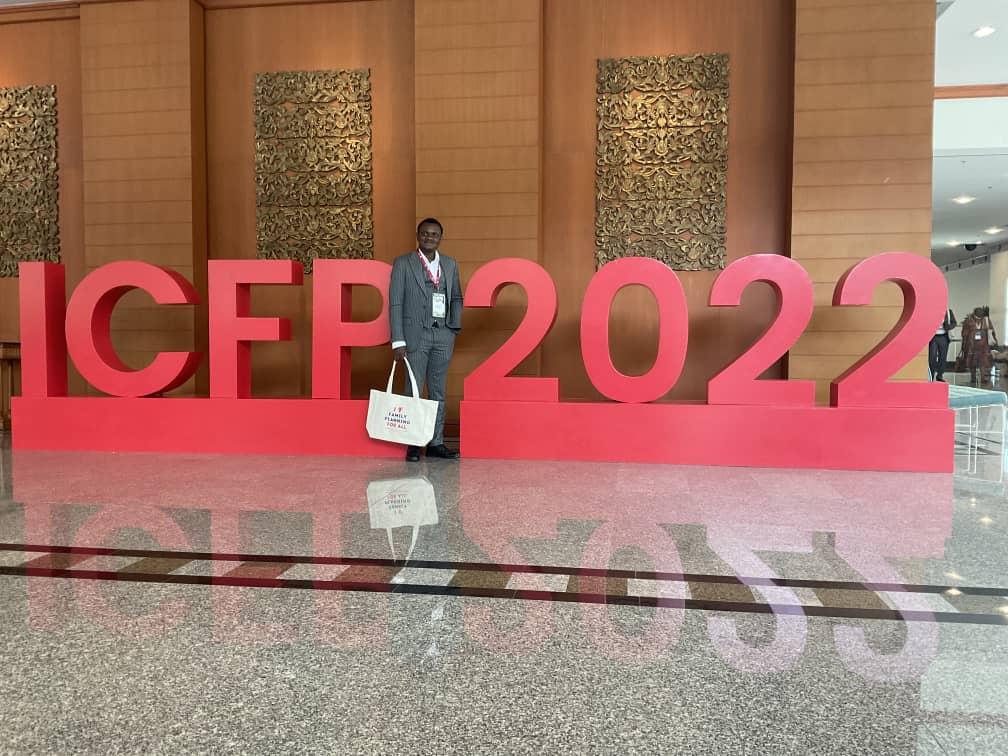Setting Sustainable Global Health Agenda: Reflections from the International Conference on Family Planning (ICFP) 2022
Adebisi Adenipekun is a Mastercard Foundation AfOx Scholar studying for a Master of Public Policy at the University of Oxford. Adebisi attended the International Conference on Family Planning (ICFP) in Thailand. In this blog, Adebisi reflects on his experience at the 2022 ICFP.

The ambience of Thailand was welcoming from the Bangkok airport on the morning of 6 November 2022. I travelled to Thailand for a two-week transforming experience. Earlier in 2022, I was selected by the Bill and Melinda Gates Institute for Population and Reproduction Health at the Johns Hopkins Bloomberg School of Public Health to participate in the Global Health Leadership Accelerator (GHLA) Training of Trainers (ToT) from 7 to 11 November 2022.
My second week in Thailand was for the 6th International Conference on Family Planning (ICFP), held in Pattaya City, Thailand, from 14 to 17 November 2022. The conference brought together about 40,000 people from 125 countries who participated in person and virtually.
The conference is arguably one of the biggest global health convenings since the COVID-19 pandemic. The theme of ICFP 2022, “Family Planning + Universal Health Coverage (UHC): Innovate. Collaborate. Accelerate”, emphasizes the importance of family planning in achieving UHC’s global health agenda. I had the opportunity to share two poster presentations with conference participants highlighting our work to promote demand for and uptake of family planning services in Internally Displaced Persons (IDP) camps in Abuja, Nigeria.
It is also important to mention that on 15 November, while the ICFP was ongoing, the world’s population hit 8 billion, as projected by the United Nations. The report also estimated a population of 8.5 billion and 9.7 billion in 2030 and 2050, respectively. By 2050, more than half of the global population will be in eight countries – the Democratic Republic of the Congo, Egypt, Ethiopia, India, Nigeria, Pakistan, the Phillippines and the United Republic of Tanzania.
This population surge, mainly in sub-Saharan Africa, calls for a deliberate review of how Africa harnesses its demographic dividends for sustainable economic development and global family planning advocacy. Briefly highlighted below are my reflections from participating in the ICFP 2022.
Clearly defined issue: One secret of momentum for ICFP is identifying and broadly framing access to family planning as a human right issue. As part of defining the problem, the family planning community also revived the concept of “demographic dividends” to communicate the need to invest in family planning to make economic sense to governments and policymakers.
Designated legitimate convening hub: The Bill and Melinda Gates Institute for Population and Reproductive Health at the Johns Hopkins Bloomberg School of Public Health is a strategic convening hub for governments, bilateral and multilateral agencies, UN agencies, INGOs, donors, the private sector, and young leaders across the world. The legitimacy of the Gates Institute has aided the partnerships with ICFP host countries and over 55 reputable institutions that served as the ICFP core organizing group and ICFP 2022 sponsors.
Developed unlikely coalitions: The ICFP community is formidable due to its diversity. At the ICFP 2022, there was a pre-conference event on “the private sector and digital health solutions: expanding access to quality family planning/reproductive health”. In addition, several other oral and poster sessions were on public-private partnership initiatives to advance family planning.
Deliberate succession and transition strategies: One of the distinguishing factors of ICFP is its conscious investment in ensuring meaningful youth participation. I recall attending the 3rd ICFP in November 2013 in Addis Ababa, Ethiopia, as one of the three young Nigerians sponsored by the Gates Institute as youth speakers/moderators. The International Youth Alliance for Family Planning (IYAFP) was born at that year’s conference. Over the years, the institute has implemented other programmes, including the 120 Under 40 New Generation of Family Planning Leaders award, to showcase leadership and youth-led positive disruptions in the family planning landscape. Several young people were involved in planning the ICFP 2022 committee chairs and co-chairs. Also, at the conference, the first-ever youth-led Adolescents, Youths, Sexual and Reproductive Health and Rights (AYSRHR) Global Roadmap for Action was launched. At the closing ceremony, Jose Oying Rimon II, the Director of the Gates Institute and Chair of the Core Organizing Group and International Steering Committee emphasized the importance of having active participation of young people in the ICFP community to keep the vision alive and sustainable.
In conclusion, ICFP 2022 was a unique opportunity for me to connect with new mentors, catch up with colleagues, and inspire younger generations of family planning and public health advocates. Also, I enjoyed the food in Thailand, and I look forward to returning to Thailand and the Asia continent in the future.
